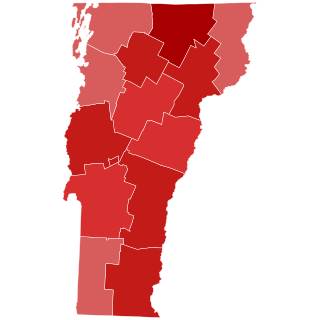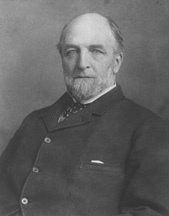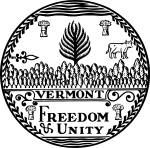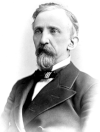
The 1928 Vermont gubernatorial election took place on November 6, 1928. Incumbent Republican John E. Weeks ran successfully for re-election to a second term as Governor of Vermont, defeating Democratic candidate Harry C. Shurtleff, an attorney. Weeks, who sought an exception to the Vermont Republican Party's "Mountain Rule", was the first Vermont Governor elected to a second two-year term.

The 1924 Vermont gubernatorial election took place on November 4, 1924. Per the "Mountain Rule", incumbent Republican Redfield Proctor Jr. did not run for re-election to a second term as Governor of Vermont. Republicans nominated Franklin S. Billings. The Democratic nomination was won by Howard E. Shaw. Shaw died before the general election, and the Vermont Democratic Party selected Fred C. Martin as his replacement. Billings defeated Martin in the general election and succeeded Proctor.

The 1922 Vermont gubernatorial election took place on November 7, 1922. Incumbent Republican James Hartness, per the "Mountain Rule", did not run for re-election to a second term as Governor of Vermont. Republican candidate Redfield Proctor Jr. defeated Democratic candidate John Holmes Jackson to succeed him.

The 1920 Vermont gubernatorial election took place on November 2, 1920. Incumbent Republican Percival W. Clement, per the "Mountain Rule", did not run for re-election to a second term as Governor of Vermont. Republican candidate James Hartness defeated Democratic candidate Fred C. Martin to succeed him.

The 1918 Vermont gubernatorial election took place on November 5, 1918. Incumbent Republican Horace F. Graham, per the "Mountain Rule", did not run for re-election to a second term as Governor of Vermont. Republican candidate Percival W. Clement defeated Democratic candidate William B. Mayo to succeed him.

The 1916 Vermont gubernatorial election took place on November 7, 1916. Incumbent Republican Charles W. Gates, per the "Mountain Rule", did not run for re-election to a second term as Governor of Vermont. Republican candidate Horace F. Graham defeated Democratic candidate William B. Mayo to succeed him.

The 1914 Vermont gubernatorial election took place on November 3, 1914. Incumbent Republican Allen M. Fletcher, per the "Mountain Rule", did not run for re-election to a second term as Governor of Vermont. Republican candidate Charles W. Gates defeated Democratic candidate Harland B. Howe and Progressive candidate Walter J. Aldrich to succeed him.

The 1908 Vermont gubernatorial election took place on September 1, 1908. Incumbent Republican Fletcher D. Proctor, per the "Mountain Rule", did not run for re-election to a second term as Governor of Vermont. Republican candidate George H. Prouty defeated Democratic candidate, Burlington mayor James Edmund Burke to succeed him.

The 1906 Vermont gubernatorial election took place on September 4, 1906. In keeping with the Republican Party's "Mountain Rule", incumbent Republican Charles J. Bell, did not run for a second term as Governor of Vermont. At the start of the year, Percival W. Clement and Fletcher D. Proctor were the leading candidates for the Republican nomination. When it became clear that Proctor had the support of the delegates, Clement ended his campaign for the nomination. He filed as an Independent candidate for the general election and was subsequently endorsed by the Democratic Party. In the general election, Proctor easily defeated Clement.

The 1894 Vermont gubernatorial election took place on September 4, 1894. Incumbent Republican Levi K. Fuller, per the "Mountain Rule", did not run for re-election to a second term as Governor of Vermont. Republican candidate Urban A. Woodbury defeated Democratic candidate George W. Smith to succeed him.

The 1888 Vermont gubernatorial election took place on September 4, 1888. Incumbent Republican Ebenezer J. Ormsbee, per the "Mountain Rule", did not run for re-election to a second term as Governor of Vermont. Republican candidate William P. Dillingham defeated Democratic candidate Stephen C. Shurtleff to succeed him.

The 1886 Vermont gubernatorial election took place on September 7, 1886. Incumbent Republican Samuel E. Pingree, per the "Mountain Rule", did not run for re-election to a second term as Governor of Vermont. Republican candidate Ebenezer J. Ormsbee defeated Democratic candidate Stephen C. Shurtleff to succeed him.

The 1884 Vermont gubernatorial election took place on September 2, 1884. Incumbent Republican John L. Barstow, per the "Mountain Rule", did not run for re-election to a second term as Governor of Vermont. Republican candidate Samuel E. Pingree defeated Democratic candidate Lyman W. Redington to succeed him.

The 1880 Vermont gubernatorial election took place on September 7, 1880. Incumbent Republican Redfield Proctor, per the "Mountain Rule", did not run for re-election to a second term as Governor of Vermont. Republican candidate Roswell Farnham defeated Democratic candidate Edward J. Phelps to succeed him.

The 1878 Vermont gubernatorial election took place on September 3, 1878. Incumbent Republican Horace Fairbanks, per the "Mountain Rule", did not run for re-election to a second term as Governor of Vermont. Republican candidate Redfield Proctor defeated Democratic candidate W. H. H. Bingham to succeed him.

The 1876 Vermont gubernatorial election took place on September 5, 1876. Incumbent Republican Asahel Peck, per the "Mountain Rule", did not run for re-election to a second term as Governor of Vermont. Republican candidate Horace Fairbanks defeated Democratic candidate W.H.H. Bingham to succeed him.

The 1874 Vermont gubernatorial election took place on September 1, 1874. Incumbent Republican Julius Converse, per the "Mountain Rule", did not run for re-election to a second term as Governor of Vermont. Republican candidate Asahel Peck defeated Democratic candidate W.H.H. Bingham to succeed him.

The 1872 Vermont gubernatorial election took place on September 3, 1872. Incumbent Republican John W. Stewart, per the "Mountain Rule", did not run for re-election to a second term as Governor of Vermont. Republican candidate Julius Converse defeated Liberal Republican and Democratic nominee Abraham B. Gardner to succeed him.

The 1870 Vermont gubernatorial election took place on September 6, 1870. In keeping with the "Mountain Rule", incumbent Republican George W. Hendee, who had succeeded to the governorship at the death of Peter T. Washburn, did not run for election to a full term as Governor of Vermont. Republican candidate John W. Stewart defeated Democratic candidate Homer W. Heaton to succeed Hendee. The 1870 election marked the start of biennial gubernatorial elections in Vermont.

The 1869 Vermont gubernatorial election took place on September 7, 1869. Incumbent Republican John B. Page, per the "Mountain Rule", did not run for re-election to another term as Governor of Vermont. Republican candidate Peter T. Washburn, who had served in the Vermont House of Representatives and as Adjutant General of the Vermont Militia, defeated Democratic candidate Homer W. Heaton, a former member of the Vermont House, to succeed him. The 1869 election was the final time the Governor of Vermont was elected for a one-year term; terms were changed to two years beginning in 1870.























